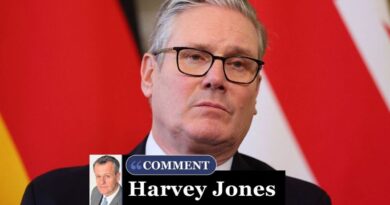Ofgem plans for major energy tariff change – but Brits warned ‘some may pay more’ | Personal Finance | Finance
Energy suppliers will be made to offer at least one tariff with lower standing charges as soon as January, under new plans confirmed by the industry regulator.
Ofgem said it wants to give consumers more choice on how they pay standing charges. If given the go-ahead, the plans, which would allow households to pay the costs as part of their unit rate by lowering the daily fixed amount, could be available by the end of January. However, experts have warned that the tariffs could see some households paying even more.
Standing charges cover the cost of supplying energy to homes and businesses. They are applied daily, regardless of how much energy the customer uses. They also cover the costs of building new network infrastructure and keeping the power on when energy suppliers go bust.
Campaigners argue the charges are unfair as they leave everybody paying the same rate, meaning they make up a far higher proportion of bills for people using less energy.
Ofgem stressed these charges cannot be removed entirely and can only be moved from one part of the bill to another, which means they are unlikely to mean lower energy costs.
Ofgem is launching a final consultation on its plans, aiming to make a decision by the end of the year. This will allow the new tariffs to be available to everyone across Britain by the end of January 2026.
Tim Jarvis, director general of markets at Ofgem, said: “We’ve listened to thousands of consumers who wanted to see changes to the standing charge and taken action. We have carefully considered how we can offer more choice on how they pay these fixed costs; however, we have taken care to ensure we don’t make some customers worse off.
“After examining all the options available to us, we believe that the right way forward is to require all major suppliers to offer at least one tariff with a lower standing charge.”
But charity campaigners have urged energy customers to take caution with these tariffs as they could risk having to pay more.
Gillian Cooper, director of energy at Citizens Advice, said: “Plans to offer a lower standing charge – the fixed cost of being connected to the electricity supply – may provide more choice to consumers, but won’t bring down people’s bills.
“There’s a real risk that those with higher energy needs, like some older or disabled people, could end up paying more if they choose one of these tariffs, so it’s crucial people are supported to make the right choice when this option becomes more widely available from January.”
Money Saving Expert founder Martin Lewis has branded the plans as “disappointing”, adding the regulator had a real chance to offer a “proper mandated low standing charge option”.
He said: “I get more complaints about Standing Charges than anything else in energy bills. It’s like a poll tax where people must pay £300 a year just for the facility of having gas and electricity, even if they don’t use it. This moral hazard disincentivises people from cutting their usage, and punishes especially older people who only use their gas during the winter.”
He added: “I worry Ofgem has picked an easy route to appease suppliers’ concerns, which doesn’t help the most vulnerable. I suspect if it goes ahead like this, not enough people will switch, and they’ll say ‘it wasn’t worth it’. We will robustly be pushing back in response in the consultation.”
It comes ahead of a 2% rise in energy costs when the next price cap change takes effect on October 1, which will see the bill for a typical household rise from £1,720 to £1,755 a year.
Martin McCluskey, minister for energy consumers, said: “Consumers should have freedom and choice when choosing an energy tariff that works for them. This proposal will make more tariffs available on the market, giving people more options to pay lower standing charges if that suits their needs.”
Simon Francis, co-ordinator of the End Fuel Poverty Coalition, said it was a “small step forward” and called on the industry to make sure that households “properly understand the deals they are signing up for”.
He added: “This development doesn’t negate the need for long-term reform to make the system fairer.”





